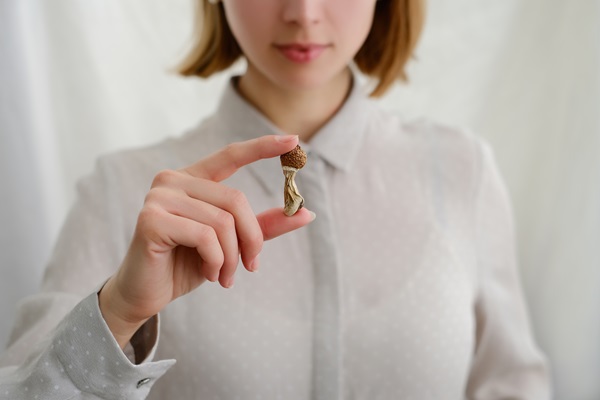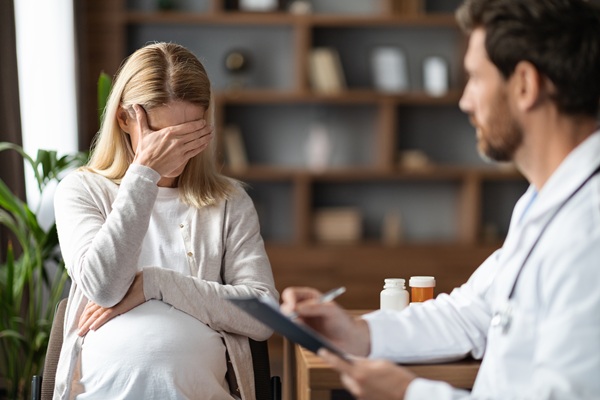Psychedelic Solutions: Understanding Psilocybin Therapy

Psilocybin therapy is a promising mental health treatment that aims to help patients with hard-to-treat symptoms and conditions achieve symptom relief from various conditions. Treatment-resistant depression is the most common focus of this psychedelic therapy. However, psychiatrists may also recommend it for patients with other mental health conditions and struggles, from anorexia to difficulty quitting smoking.
Psilocybin as a mental health treatment
Per the U.S. Drug Enforcement Administration (DEA), psilocybin is the psychedelic compound found in types of psilocybe mushrooms, also known as magic mushrooms. The body metabolizes psilocybin into psilocin, the active ingredient. While many people misuse so-called magic mushrooms recreationally, there is evidence that psilocybin can be beneficial as a mental health treatment when people use it responsibly. JAMA, Frontiers in Psychiatry, Johns Hopkins Medicine, and the New England Journal of Medicine, among others, have published peer-reviewed articles that show the efficacy of psilocybin therapy and support its use.
The general consensus among researchers is that psilocybin, when used in a supervised environment, can have beneficial effects on mental health. Specifically, it has produced positive results in patients who have been diagnosed with treatment-resistant mental disorders, meaning their symptoms have not improved with traditional treatments. As per Everyday Health, the following therapeutic uses of psilocybin have shown promising results:
- Major depression, including treatment-resistant depression
- Post-traumatic stress disorder (PTSD)
- Anorexia nervosa
- Alcohol use disorder
- Smoking cessation
- End-of-life anxiety
How psilocybin therapy works
Essentially, psilocybin therapy works by allowing the patient to experience the positive effects of psilocybe mushrooms under the guidance of a medical professional. The most notable effect is an altered state of consciousness that creates a spiritual or emotional experience. Patients often report experiencing ego death, a renewed sense of awe, or increased insightfulness. The drug and the experiences it creates work together to rewire the brain, forming new brain connections and breaking old thought patterns.
Medical vs. recreational use
It is not recommended to take psilocybin outside of a medical setting. Medical professionals will ensure the appropriate dose of psilocybin is administered, as well as monitor the patient throughout the process. Medical supervision also reduces the chances of negative side effects and, should they occur, allows them to be addressed immediately.
Potential side effects
Every drug has the potential to cause negative side effects. With psilocybin, the most common are:
- Headache
- Nausea
- Fatigue
- Dizziness
- Increased blood pressure
- Anxiety and confusion
Less common side effects include migraines, paranoia, and psychological discomfort.
What to expect from the therapeutic process
A healthcare provider may administer psilocybin therapy in one of two ways. The first approach focuses more on psychotherapy, also known as talk therapy, and how psilocybin can help a patient receive a greater benefit from it. This is similar to taking antidepressant medication to reduce depressive symptoms and make it possible for the patient to attend therapy and complete therapy homework.
The second approach is more focused on the benefits of psilocybin itself. In this approach, the medical professional administers a therapeutic dose of psilocybin, allowing the patient to experience its hallucinogenic properties in a controlled environment. The idea is that experiencing the effects in a safe, comfortable medical setting will help relieve the patient’s symptoms. Think of it like taking aspirin for a headache; the psilocybin will do the bulk of the work.
Session number and length
Psilocybin therapy requires multiple sessions to produce lasting results. The exact number will depend on the patient’s condition and treatment goals. Patients should note that a dosing session in which the drug is administered takes about five to eight hours. This is partly because the effects of psilocybin may last up to six hours, and the effects will need to subside before the patient can go home safely.
Who is a candidate?
Individuals with major depressive disorder, anorexia nervosa, or PTSD may be good candidates for psilocybin therapy. This is particularly the case if they have received but not benefitted from traditional treatments, such as talk therapy and prescription medication. Those struggling to quit smoking tobacco or drinking alcohol, especially those with alcohol use disorder, may also be good candidates.
However, psychedelic therapy is not recommended for patients with certain preexisting conditions or those predisposed to these conditions. For instance, it can cause worsening hallucinations and symptoms in patients with schizophrenia, psychosis, bipolar disorder, or borderline personality disorder. It can also cause adverse symptoms in those with a family history of these conditions. Therefore, such patients are not candidates for this type of therapy.
Explore psilocybin therapy
Traditional mental health treatments are beneficial for many, but they are sometimes not enough. If you or a loved one has been struggling with a hard-to-treat mental disorder or would like to quit smoking but cannot, consult a psychiatrist about psilocybin therapy. Call our Myrtle Beach office today for more information.
Request an appointment here: https://mb.futurepsychsolutions.com or call Future Psych Ketamine Clinics at (843) 788-9718 for an appointment in our Myrtle Beach office.
Check out what others are saying about our services on Yelp: Read our Yelp reviews.
Recent Posts
ADHD treatment from a psychiatrist helps children and adults lead happy and productive lives by helping them manage their symptoms. Attention deficit hyperactivity disorder, or ADHD, is a neurodevelopmental disorder characterized by inattention, impulsiveness, and hyperactivity. Untreated, ADHD symptoms can disrupt the day–to–day life of those who suffer from it. The key to successful treatment…
Major depressive disorder treatment plans offer a structured and innovative approach to alleviating the burdens of depression. As mental health care evolves, new methods have gained recognition for their effectiveness in treating symptoms of this mental health condition. Knowing what to expect from these treatment plans can help create realistic expectations and improve your overall…
Attention-deficit/hyperactivity disorder (ADHD) is a neurodevelopmental disorder that affects millions of people worldwide. Common symptoms of ADHD include the inability to pay attention, acting impulsively, and having uncontrollable energy. ADHD significantly impacts how a person goes about their daily life. Fortunately, many treatment options are available to manage ADHD symptoms and improve overall functioning.Prescription medication…
Attention-Deficit/Hyperactivity Disorder (ADHD) is a neurodevelopmental disorder affecting children and adults. Fortunately, there are many ADHD treatments available. Early diagnosis and treatment are crucial for managing symptoms and improving quality of life. Whether you or a loved one is living with ADHD, it is important to understand multiple treatment options exist.The diagnosis of ADHD involves…


